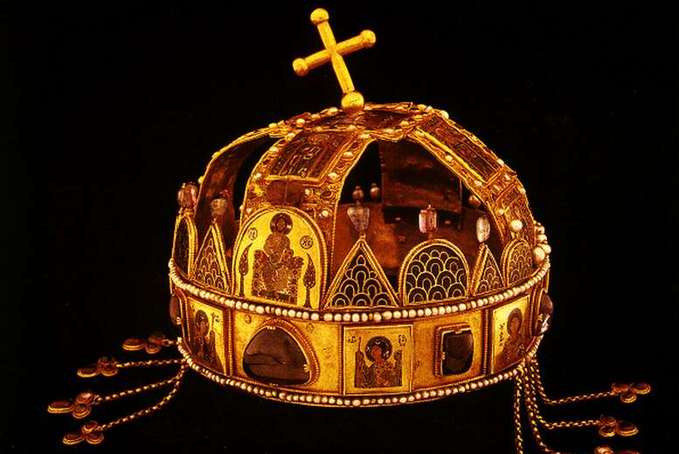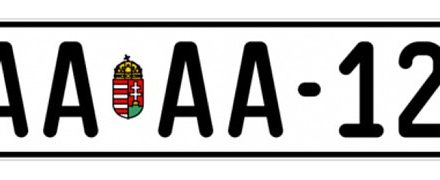The doctrine of the Holy Crown is evidently not valid in its entirety today; on the one hand - among other things - not because the state form and state organization are not historically identical to the state form and state organization.
Furthermore, not because the internationally prevailing legal culture and set of concepts, the political and moral principles and views, the world view have changed significantly - but not insurmountably according to the testimony of the historical constitution - the respect for Christian values has declined dramatically .
The Basic Law of the present time fully recognizes, values and respects the idea of the Holy Crown, which goes beyond the principles and does not have a name:
We respect the achievements of our historical constitution and the Holy Crown, which embodies Hungary's constitutional state continuity and the unity of the nation.
The aspiration of civil society to preserve the independence of the nation and its citizens against the state, and to protect their freedom, property, and rights, is rooted in the historical constitution - also in the Holy Crown approach to the state .
It is a regrettable fact that the Hungarian Constitutional Court does not even mention the doctrine of the Holy Crown, and what is more, it does not mention the Holy Crown of Hungary in its content that displays the main power and constitutional principles, not even historically. At the same time, it is indisputable that the doctrine of the Holy Crown or the theory of the Holy Crown and its principles were a pivotal part of Hungarian constitutional thought, at the earliest in the IX. from István Werbőczy's at the latest , his Triple Book from 1514, from the beginning of the 16th century to the 20th century. century.
There is no doubt that a constitutional court did not exist in the historical era, so there is no example of the application of the doctrine of the Holy Crown as a constitutional interpreter, and it can be easily stated that the XXI. 20th century legal thinking is not suitable for the present-day interpretation of this theory.
However, it is a fact that the theory of the Holy Crown is part of the historical constitution, and the achievements of the historical constitution must also be taken into account according to the Basic Law when interpreting the Basic Law. It is difficult to assume that anyone would dispute that the doctrine of the Holy Crown is not only a part of the historical constitution, but an achievement of pivotal importance , namely an achievement that historically and theoretically lays the foundation for the principle of equal rights of citizens determined on the basis of membership of the Holy Crown, the external and internal independence (sovereignty) of the Hungarian state ) and the principle of the rule of law, according to which society exists subject not to people, but to laws and higher principles.
During the time of the parliamentary constitutional monarchy after 1867 - when the theory of the Holy Crown was generally known and accepted - no legal arrangement regarding the Holy Crown prevailed in the competence and functioning of the bodies of state power, and what is more, the philosophical principle of the Holy Crown as power did not even appear in the laws , and so it is today. But it significantly determined community thinking.
It can therefore be concluded that the theory of the Holy Crown is a legal philosophical category and in this capacity expressed basic constitutional principles throughout the entire era of the historical constitution, and in recent times corresponded to the ideological system of a modern democratic state. Thus, in the event that the Hungarian Constitutional Court discusses the equality of citizens, the external and internal independence (sovereignty) of the state, or the idea of the rule of law and the rule of law, the doctrine or theory of the Holy Crown cannot be avoided in these discussions, if not by name, and perhaps the more in line with today's times, the idea of the holy crown is mentioned according to its value and weight.
The constitutionalism of our time is not about the relationship between the king and the nation, but it can be about the nation, the present-day representative of the membership of the Holy Crown, about the community existing in the spirit of Christian solidarity and equality, the historical homeland and respect for each other, of which every Hungarian citizen is a member and everyone whose ancestors at one time or another They were members of the Holy Crown, Hungarian citizens regardless of nationality or religion.
This community spirit that encompasses the countries of the Holy Crown, as a goal and task and as an unfolding reality, as a Danube Valley-Carpathian basin holy crown internationality, is nothing but the contemporary reality of the idea of the holy crown. The contemporary reflection of the idea of a multi-ethnic flourishing Christian empire permeated by the idea of the holy crown, the transformed version of the idea of Saint Stephen, determined by the role of the Hungarian people as initiator - example - organizer - mediator in the region, is a common, historically based, sustaining response of the peoples and citizens of the East - Central European region to the challenges of our time. powerful Christian response.
The Holy Crown is a huge community resource for people who understand, even if we can't decipher all its secrets.
Author: Zsolt Zétényi
The entire series can be read here: Szent Korona story













